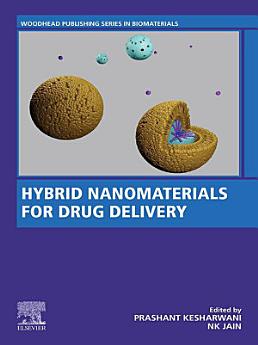Hybrid Nanomaterials for Drug Delivery
À propos de cet e-book
À propos de l'auteur
Dr. Prashant Kesharwani is an assistant professor of pharmaceutics at School of Pharmaceutical Education and Research, Jamia Hamdard, New Delhi, India. He has more than 12 years of teaching, research, and industrial experience at international levels from various countries, including the United States, Malaysia, and India. An overarching goal of his current research is the development of nanoengineered drug delivery systems for various diseases. He has more than 300 international publications in well-reputed journals and more than 25 international books (Elsevier). He is a recipient of many research grants from various funding bodies. He is also the recipient of several internationally acclaimed awards, such as “USERN Laureate award, most prestigious “Ramanujan Fellowship Award. He actively participates in outreach and scientific dissemination for the service of the wider community.
Prof. N.K. Jain is an internationally renowned academician and researcher and a senior professor in India who superannuated in June 2014 after rendering more than 40 years of dedicated and distinguished service as a teacher and 25 years as full professor. Prof. Jain is the author of two dozen celebrated books in pharmaceutical sciences in India and has contributed several chapters in national and international books. He has to his credit over 480 publications in reputed pharmaceutical Journals and has supervised 55 PhD and 141 M. Pharm. candidates. He has been a reviewer for several international and national research journals. Professor Jain’s current research interests include various aspects of controlled, novel and targeted drug delivery; nanotechnology and nanomedicine and he is globally known for his excellent research in the field of hydrotropic solubilization, resealed erythrocytes-based drug delivery and dendrimer drug delivery. Currently he is exploring the pharmaceutical potential of Carbon Nanotubes and Quantum Dots. Recently he has also contributed two chapters on international books.





